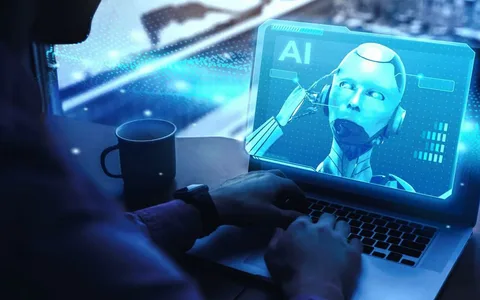AI copyright concerns have become front-page news in the UK as more than 400 musicians, such as Elton John, Dua Lipa, and Paul McCartney, push Prime Minister Keir Starmer to take action. In a strong open letter, these artists have threatened that without sufficient copyright measures, artificial intelligence would be able to use their work without consequence, resulting in “years of copyright theft” and putting the nation at risk of losing its position as a world creative leader. As generative AI evolves rapidly, the clash between innovation and intellectual property rights is intensifying, with the UK creative industry pushing back to protect its future.
Read More: Unilateral Tariffs Threaten Global Trade Amid High-Stakes US-China Talks
UK’s Creative Icons Warn Against Copyright Exploitation
In an uncharacteristic display of solidarity, the UK’s leading cultural names have united against what they perceive as a deadly loophole in the nation’s AI copyright law. The open letter points to an alarming threat: that technology companies training AI algorithms might use copyrighted material—music, scripts, paintings—without paying licensing or giving credit. Artists contend it would not just damage their businesses but also drain the UK of its cultural support.
The letter is not just a complaint—it’s an action appeal. It allies itself with a proposed amendment to the Data (Use and Access) Bill, introduced by Baroness Beeban Kidron, which would oblige AI copyright companies to reveal if they have made use of copyrighted material. The goal: openness, fair reward, and respect for creators’ intellectual property.
Tech Innovation vs. Artistic Ownership
Though the artists have presented a strong argument, there is opposition. Julia Willemyns of the Centre for British Progress cautions that overly restrictive copyright laws will push AI innovation overseas and hinder technological progress.”A closed copyright system would outsource AI copyright and hurt the UK economy directly,” she said. This comment underlines the balancing act: preserving creators while stimulating tech growth.
The government has approached things cautiously thus far. They’re adamant no decision will be made until they’re sure that the law preserves both intellectual property and innovation. With a defining House of Lords vote looming, the stakes couldn’t be higher.
Also Read: Toyota Faces $1.3 Billion Hit as Trump Tariffs Disrupt Industry
The Amendment That Could Define UK’s AI Future
At its core is Baroness Kidron’s amendment. Her suggestion requires AI developers to make it transparently clear when they use copyrighted material in their training data. In her view, this’s not about slowing down innovation—it’s about being fair. “Transparency is not a barrier to innovation,” she states, “it’s a foundation for a vibrant, ethical AI market.
It is backed by musicians like Coldplay, Florence Welch, and Robbie Williams, who contend that the amendment will enable an authentic licensing marketplace to thrive. The AI copyright industry will cannibalize its own culture, they warn, if the amendment is not enacted.
Artists Act Beyond the Letter
This campaign is not only about statements and signatures. Music legends Annie Lennox and Damon Albarn created a silent protest album in February, raising awareness on the issue. It’s part of an escalating global movement calling for accountability from technology companies using AI copyright to create creative content.
Generative AI applications are already competent to create music, compose poetry, and even duplicate voices—all based on existing work that they have learned from. If nothing is done about it, artists are worried that such tools might take away their creative worth and make them free data points for a machine’s learning model.
It’s time to act or forever hold one’s peace for UK parliamentarians. The creative industry has already stated its case clear and strong: human imagination cannot be eclipsed or hijacked by machines. If the UK wants to be an international cultural trendsetter, it needs to act fast—and equitably—in legislating AI copyright.
For More Trending Business News, Follow Us 10xtimes News






